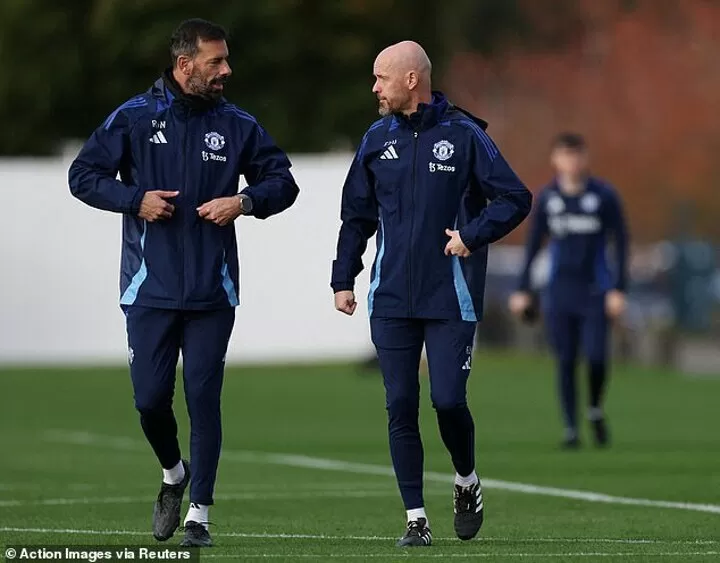
Ruben Amorim’s career trajectory exemplifies resilience, adaptability, and an innate drive to succeed. These qualities have propelled him from a sidelined teenager to Manchester United's youngest full-time head coach since Wilf McGuinness in 1969.
His story begins in Lisbon, where Amorim and his childhood friend Bruno Simao shared the dream of playing professional football. Both had been part of Benfica’s youth system but faced rejection in their teens. Simao found an opportunity with nearby Belenenses, while Amorim struggled with the emotional toll of being released from his boyhood club.
Simao recalls urging Amorim to join him at Belenenses, even arranging a trial match. “Ruben told me, ‘I can’t play; I broke my arm,’” says Simao. Undeterred, Simao convinced Amorim to participate, despite his injury. The coaches instructed players to handle him carefully, and despite the setback, Amorim was impressed enough to earn a place on the team.
This pivotal moment marked the start of a professional playing career built on overcoming adversity—a theme that defines Amorim’s journey.
From a young age, Amorim showcased an aggressive playing style and a deep tactical understanding of the game. Pedro Russiano, who played alongside him at Benfica’s academy, remembers Amorim as a relentless competitor. “He fought for every ball,” Russiano recalls. “We learned a lot together, and Ruben always stood out for his passion.”
Despite his early dismissal from Benfica, Amorim’s tactical intelligence allowed him to thrive at Belenenses. In 2007, he played a pivotal role in their Primeira Liga campaign, helping the team reach the Portuguese Cup final. Although Belenenses lost 1-0 to Sporting CP, Amorim’s performance further established his reputation as a cerebral player who relied more on intelligence than exceptional physical skills.
Amorim’s perseverance paid off in 2008 when Benfica, the club of his heart, signed him after more than 100 appearances for Belenenses. It was a moment of redemption, fulfilling a dream he had carried since childhood.
Patrick Morais de Carvalho, president of Belenenses, recalls Amorim’s tactical sharpness: “He wasn’t an extraordinary player physically, but his intelligence and understanding of the game set him apart.”
Fast-forward to today, Amorim is set to lead Manchester United against Ipswich at Portman Road. At 39, he takes the reins during a challenging period for the club, but those close to him believe he is uniquely prepared for the task.
Bruno Simao, who remains a close friend, sees Amorim’s move to Old Trafford as a fitting opportunity. “United is in a tough spot, but it’s still one of the world’s top clubs. For Ruben, this is a fantastic challenge.”
Amorim’s commitment to his craft and his ability to navigate setbacks have drawn comparisons to Jose Mourinho, earning him the moniker “The Second Special One.” As he begins his tenure, Amorim carries with him the same determination that saw him defy the odds as a player—a quality Manchester United will undoubtedly rely on as they strive to reclaim their place among football’s elite.